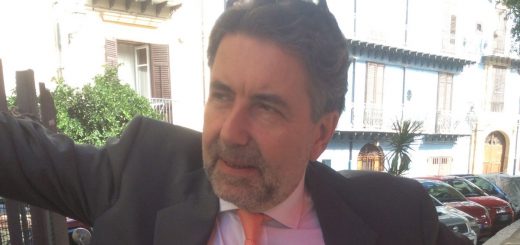The Fleming Foundation Cultural Commentary
People invent new words to describe new phenomena. Take “quack” as an example. In my schoolboy ignorance I used to think that “quack” was an amusing slang noun derived from the word describing the noise a duck makes. Not at all. It is an earlier seventeenth-century abbreviation of an entirely serious sixteenth-century Dutch word meaning “a pedlar of false cures,” that came into English as “quacksalver.”
Some years ago I knew a lady, gainfully divorced from a Russian oligarch, who turned to me with the plea to find her an honest lawyer in London. This made me privy to the substance of her predicament, which was basically that the fortune she kept in a famously named Swiss bank had been pilfered
The Fourth book is largely taken up with Herodotus’ intriguing account of the Scythians and with Darius’ ill-advised expedition against these strange people. The Scyths were a people of Iranian stock, probably very similar to the Medes and Persians before they entered the Middle East and found themselves subjected to the constraints of civilization. They were nomadic horsemen, fearless warriors, and hard to govern. While Darius claims one reason or another for holding a grudge, it would seem that Herodotus regards the expedition as an instance of megalomania.
This is the real Part Three, not previously posted.
A podcast with Stephen Heiner and Thomas Fleming on the Fall of the Western Empire, the Gothic Kingdom of Italy, and the enduring legacy of the Roman Empire.
Zaatar, as the gentle reader may recall from his travels, is a blend of herbs and seeds popular for centuries throughout the Middle East. Sprinkle it on toasted flatbread with a spray of olive oil and, even if you aren’t wearing a checkerboard towel round your head, a delicious breakfast awaits you
What qualities distinguish a barbarian from a civilized man?
I set this conundrum once before, in another forum over which our founder was then presiding. It bears being repeated, however, all the more so as it is to do with the intertwining of friendship and family ties which has been my subject here of late. But permit me to start from a little farther afield.
In “1984,” Emmanuel Goldstein is the Enemy of the State necessary to bring cohesion to the totalitarian regime. The Two Minutes Hate directs society’s rage against the exiled traitor. Goldstein now is aiding Oceania’s current enemy – Eastasia or Eurasia, depending on the day – with whom we always have been at war.
Book III gets down to the business of Cambyses, Cyrus’ successor, and the invasion of Egypt in which he displays signs of madness, which might just be interpreted as the indications of the tyrannical character that is created when boys are raised without anyone who can say, “NO!”




